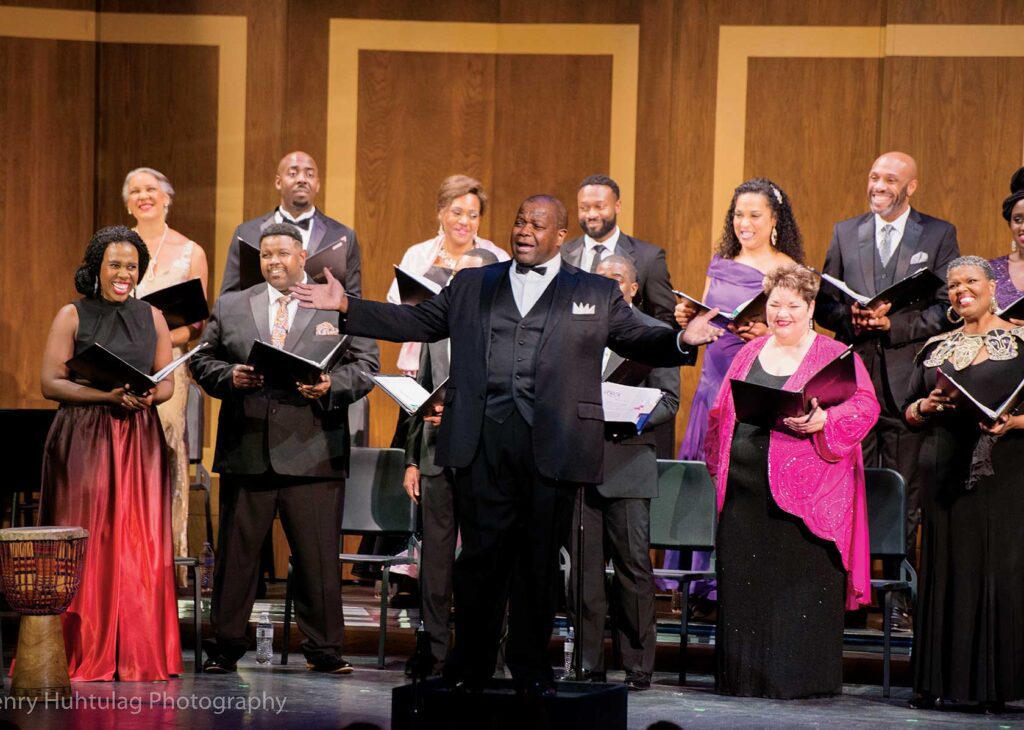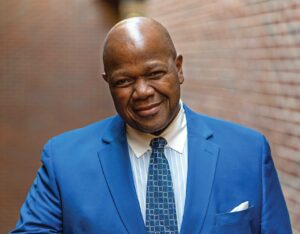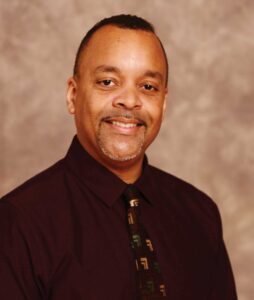American Spiritual Ensemble keeps the spirit alive
Vocal group brings "the mother music" to Massachusetts

African American spirituals were the soundtrack to Everett McCorvey’s upbringing in Montgomery, Alabama. Growing up in a family involved in the civil rights movement, he heard the soulful melodies often — in churches, in anthems and in choirs like the Fisk Jubilee Singers.
“It was something that touched me greatly. So, I wanted to make sure that this music was not lost,” said McCorvey, who founded the American Spiritual Ensemble in 1995.

Everett McCorvey, founder and director of the American Spiritual Ensemble. PHOTO: WILLIAM ARNOLD PHOTOGRAPHY
The vocal group is made up of professional operatic singers, all with one mission in mind: to keep spirituals, a 400-year-old folk genre born of slavery, alive. ASE’s members have performed internationally, and for the first time in the group’s 29-year history, ASE will bring spirituals to Massachusetts, a state with its own historical ties to the slave trade. On April 6, ASE will perform at Assumption University’s Curtis Performance Hall in Worcester, brought to New England in partnership with Music Worcester, an organization offering music performances and education programming.
Beyond keeping the spiritual genre aflame, McCorvey, ASE’s director, said the group aims to prevent it from being conflated with the more contemporary gospel style of music, which would erase its significance. ASE achieves this by weaving a centuries-old tale and presenting it in a concert format. McCorvey said he and the singers transform the melodies that came out of the plantations into arrangements that can be sung by a modern-day choir.
“I call spirituals the mother music,” he said. “It’s the music that helped this country find its voice, and it’s a type of music that no other country in the world can lay claim to.”
McCorvey’s own journey to discovering his voice started with learning to play the trumpet in third grade. His fascination with music quickly blossomed, propelling him into a career that included playing in his college band and later joining church choirs. Today his voice, a classical tenor, is his primary instrument of choice. In his view, music is “the purest form of human expression,” he said.

Tenor John Wesley Wright has been
a member of the American Spiritual
Ensemble for 18 years. He describes his experience with the group as
“transformational.” PHOTO COURTESY OF JOHN WESLEY WRIGHT
When Georgia native John Wesley Wright joined ASE 18 years ago, he was intimidated by the other performers’ vocal capabilities. But ASE soon became a space that helped Wright, a professional tenor and a professor at Salisbury University, find his voice. He called his time with the group “transformational,” adding that its heterogeneity and diversity of voices is what makes it unique.
McCorvey sees ASE above all as a way to ensure both the longevity and the accessibility of spirituals.
“One of the big questions I get asked is, ‘Should only a particular race sing this music? Should only African Americans sing this?’ And my response is no,” he said. “Because this is American music … and it should be sung by everybody.”






